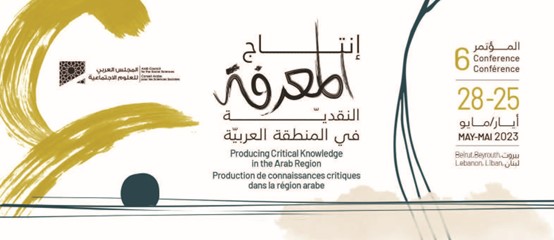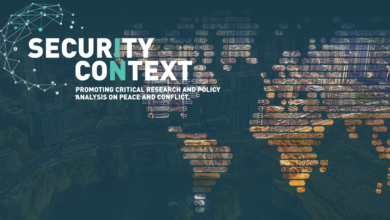”
The Syrian Center for Policy Research is Participating in the sixth Conference of the Arab Council for the Social Sciences,with three research papers.
Date: May 25 – 28, 2023
Location: Crowne Plaza Hotel, Hama Street, Beirut.
The event will be livestreamed on ACSS Facebook Page. Translation into Arabic, English and French will be available.
Visit the conference page to access the full program.
The first paper, “Challenges of participatory research with adolescents and children in conflict context”. The paper provides a critical review of dominant approaches to conduct research with children and adolescents including the UN agencies approaches which are affected by the position of political and humanitarian actors. It also shows the importance of understanding the structural factors that hindered the adolescents’ capabilities and opportunities. Finally, it highlights the importance of including adolescents and children as part of research.
The paper reflects on two main research projects that have been conducted in Sudan and Syria using consultations with adolescents (henceforth, CAs). The CAs research used a transdisciplinary participatory approach to assess the challenges and expectations of adolescents in relation to education, health, participation within the context of ongoing conflict in Sudan and Syria.
The CAs adopted a hybrid conceptual framework including human rights, and the rights of children and adolescents in particular, capabilities and opportunities, and political economy frameworks. The research methodology was a gender-sensitive, rights-based, equality-focused, and takes a life-cycle approach. It used qualitative methods to assess the immediate, underlying, and structural causes of any lack and/or violations of girls’ and boys’ rights in the armed conflict context.
The second paper, “Rethinking Citizenship in Conflict Context”. The paper discusses the importance of challenging the neoliberal political and economic discourse that promotes the role of “neoliberal capitalist model” in harming the citizens capabilities and opportunities through dismantling the developmental role of state, aggravating the global imbalance power structure, socioeconomic inequalities, political exclusion, and identity politics, in addition to shrinking the civil society role to be service oriented and donor driven.
The paper also critically explores how the state in Syria followed the global transformation in the neoliberal era, as it reduced its developmental and welfare role, yet it expanded its political oppression and abuse of power to the benefit of political and economic elite. This state used unpresented violence and human rights violation to supress the social movement that asked for inclusive and just environment for citizens. The country has transformed into a shattered, destructed, and polarised state and society, while fanaticism and political economies dominated the social and economic relations.
In this context, the paper critically reads the conservative discourse on citizenship, as a legal status that entitles individuals to a specific set of universal rights granted by the state and considers citizenship and nationality as identical concepts. The sovereign, territorial state therefore remains the fundamental institutional framework to define citizenship in conservative theories, even when discussing governance on the local level, and human rights on the global one. This reduced form of citizenship ignores the role of “liberal democratic system”, “neoliberal capitalism”, and the identity politics in dismantling the spaces and abilities of citizens. In the paper we developed our framework based critical theory, critical political economy, and postcolonialism, to explore the concept of citizenship that is conscious of power structures and in which cultural identities and social relations cannot be dismissed of their political and legal meaning. In this regard the paper designed a hybrid framework which is combing critical political economy with capabilities frameworks.
The third paper, “Exploring forms and determinants of social solidarity in fragile states”. The paper shows the lack of research on social values, trust, relations, and solidarity; additionally, it provides a critical review to the literature that stereotype the social relations and values in the Arab countries and particularly in Lebanon.
The paper suggests an operational definition of social Solidarity as a social feature between groups and individuals in a society, consisting of relationships, social networks, and collective action; feelings of empathy, attunement, belonging, respect and a sense of responsibility towards others; and the values, standards, interests and goals common to these individuals and groups. The paper also identified elements of solidarity, types of groups, and process of building solidarity.
The paper is Based on a research project on solidarity in Lebanon; the paper provides a framework that is based on the critical theory, postcolonialism, feminist theories and critical political economy and capabilities approaches. The framework aims to diagnose the forms of solidarity in the conflict context and determines the factors that promote or hinder solidarity in the solidarity between and within refugees and host communities. The paper provides a transdisciplinary and participatory approach to engage with the communities in an inclusive and ethical ways.
The paper reflects on the field work experience and suggests an index to asses’ different aspects of solidarity within the society during the conflict. Also, it highlights the importance of understanding solidarity as a core foundation for the society to overcome crisis and transform conflict.







